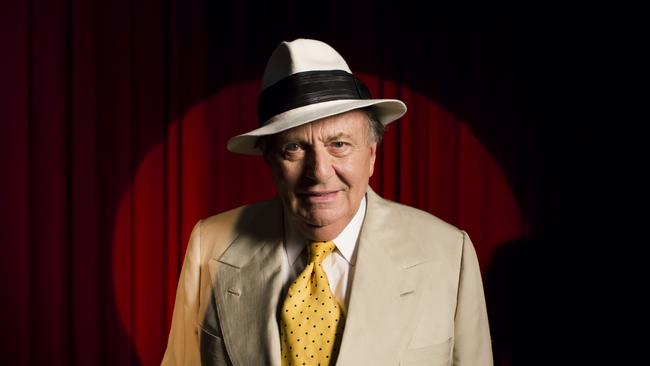
At the time the award was renamed, MICF director, Susan Provan said that Humphries comments “were a factor” in the decision, but that “for some time the festival and comedy community have discussed renaming the award”.
Humphries’ comments relate to the most controversial of topics (for reasons known only to those who make them and those who respond to them) criticising transgender people. Humphries entered the fray describing transgender males as guilty of “self-mutilation” and describing gender fluidity as a fad.
Actor and close friend of the comic genius, Miriam Margolyes said the renaming of the award left Humphries “very hurt and saddened by what happened after the Melbourne festival”.
Margolyes, who appears in seemingly endless fish out of water-themed documentary studies for the BBC, went on to say that she firmly disagreed with her mate. Yet, she did not denounce Humphries or put his telephone number on her block list.
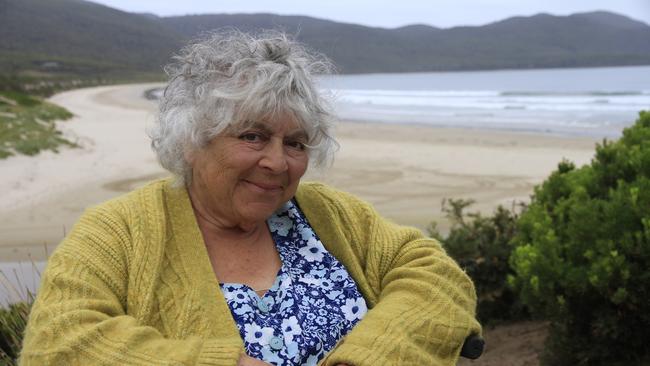
It is proof when it is truly needed that people can disagree without going to the trenches.
Now with Humphries’ passing, festival organisers are contemplating how best to honour the passing of the comedic giant.
Whatever hijinx might be planned, festival organisers can’t shy away from their hypocrisy.
At a time where comedians are congratulated for their bravery rather than their ability to make people laugh, Humphries’ death raises questions of what is funny, and what limits now exist in humour.
Overanalysing comedy is a fool’s errand. Humour, best described as a comic’s material, is invariably subjective but the response – laughter should be instinctive.
While comics are social commentators, if they’re not funny, they are by definition, not comedians. They are simply people with a microphone in hand and some feelings. Comics should be provocateurs, prepared to shock and unnerve their audiences, but if they walk a safe line then they are merely pushing conventional thought.
There is a golden rule for comics, as for commentators – understand your audience. But problems arise when the prevailing view of the audience or society in general, restrict the comedian from challenging orthodox thought. The result is a desultory pandering to sameness.
Some of the biggest names in comedy – Jerry Seinfeld, Dave Chappelle and Chris Rock to name but three, now refuse to play college crowds, deeming the audiences too judgmental. Issues of race, ethnicity, gender and gender fluidity are red flags for young audiences drawing hoots of disapproval.
Cutting gender fluidity and race out of Chappelle’s material would leave him with a breezy little ten second set.
In the wake of Humphries’ death, I have read commentary pointing to the Left as the guilty party in their push for cultural homogeneity. And that is partly true. But the Right have always been book banners and taking a quick glance at Florida, still do.
Comedian Lenny Bruce was arrested for obscenity while performing a set in a jazz club in San Francisco in 1961. Back then the now progressive virtual one-party city was a hotbed of reaction and counter-reaction to the conservative-laden US Supreme Court bench’s decision known as Roth v. U.S. (1957), which held for the first time that the First Amendment does not protect obscenity because such expression is “utterly without redeeming social importance.”
Publisher and writer, Sam Roth was jailed in New York for publishing imprints of James Joyce’s Ulysses and D.H. Lawrence’s Lady Chatterley’s Lover.
At or around the same time, the wallopers in Australia were ripping Lady Chatterley’s Lover off the shelves for incineration and frog-marching bookshop owners away in handcuffs.
It is also worth stating that Barry Humphries’ in full Edna Everage splendour would be banned from performing in public in Tennessee after the state’s Republican-led legislature recently criminalised drag queen acts in public spaces.
The Left-Right divide is an unhelpful guide to what is in and out in today’s comedy. Both the Left and the Right practice cancel culture in an interminable orbit of denunciation and influencer-led boycotts.
The truth of it is, the Left has become as unrelentingly censorious as the Right has always been.
The Left I grew up with pushed boundaries and mocked social convention. Barry Humphries was a hero of the Left back then. Watched by a youngster who grew up in the often stultifying monoculture of Melbourne’s suburbs, Humphries was a force of liberation, an absurdist who identified the often ridiculousness of existence.
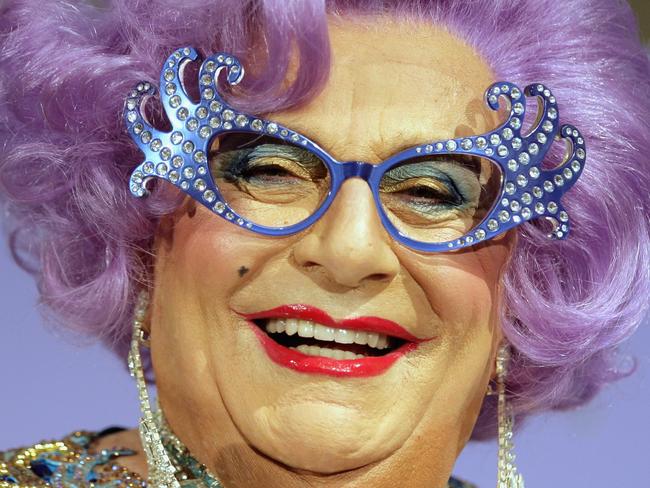
Humphries was not on a ballot. He did not run for public office. The idea that a comedian of his stature might say something remotely controversial should be taken as read. The fulminations of those who oversee the Melbourne International Comedy Festival, as representative of the new puritanical Left, claim a reach for diversity while not being quite so diverse as to accept the opinions of those they disagree with.
Through his characters, the plesionymic Everage, the trouser inflated Sir Les Patterson or the drab, suburban monotones of Sandy Stone, Humphries gave us a pathway to laugh at ourselves.
That is what is missing today. It is not a feature of the Left-Right divide. It is something far more dangerous, a loss of self-deprecation and with it, self-awareness.
Where the rabid denunciations become too loud, the instinctive response to humour becomes like an AFL umpire’s response to a holding the ball ruling. A series of mental checklists that one now must go through. Did that joke cause offence to a person or group? Am I now guilty of intolerance? A guffaw might be a sign that I’m a misogynist. If I laugh or don’t laugh, people might think I’m a racist. Or an advocate of genital mutilation. Am I condoning oppression of one type or another?
With no boxes ticked, the response might be a collectivised chortle or with a few ticks here and there, a stunned, angry silence.
Barry Humphries and the eulogising, real or contrived, has begun. The real danger is that pure, instinctive laughter may have died with him.


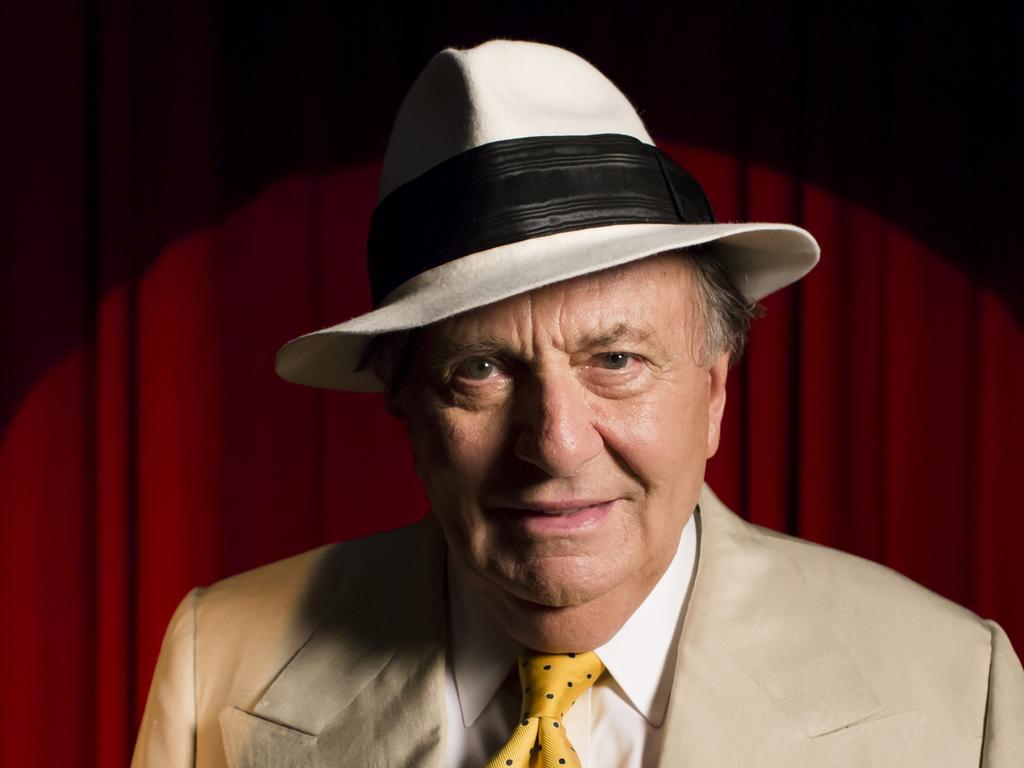
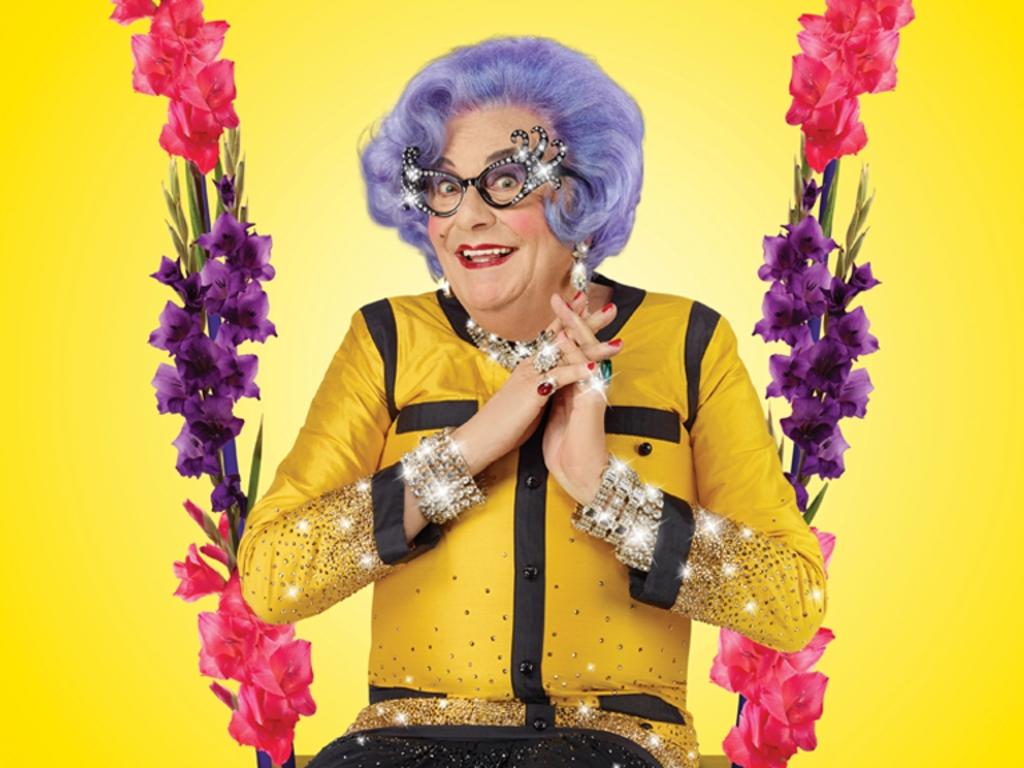
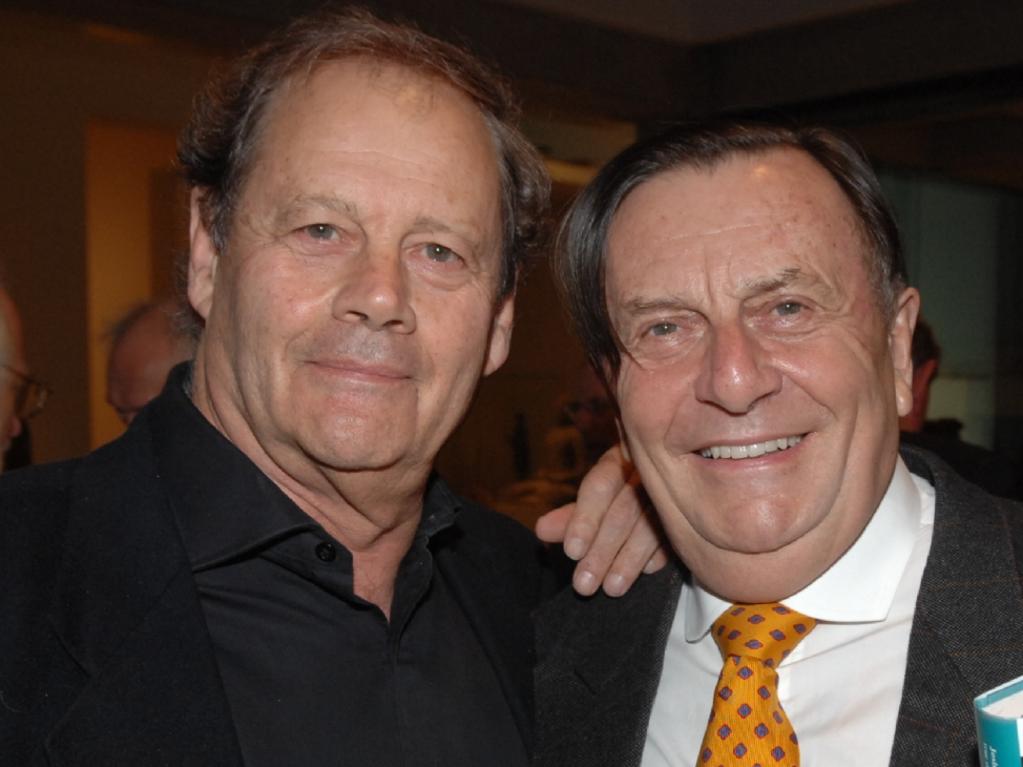



What a difference a death makes. Four years ago, the Melbourne International Comedy Festival dropped Barry Humphries’ name from the award for the most outstanding show, preferring the homogenous, Outstanding Show.